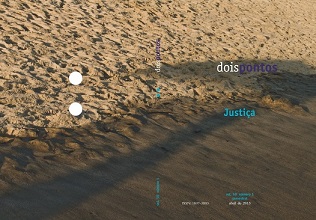Economia Política e as raízes da posição original em Rawls
DOI:
https://doi.org/10.5380/dp.v10i1.30712Palavras-chave:
economia política, liberalismo político, posição original, escolha racionalResumo
O impacto e a relevância da teoria econômica para o desenvolvimento de A Theory of Justice são, frequentemente, deixados de lado na imensa literatura a respeito das obras de John Rawls. Ainda assim, entender os elementos de economia política na obra de Rawls é fundamental para a compreensão dos motivos pelos quais ele abandonará uma abordagem utilitarista para a filosofia política e, consequentemente , par a noss o entendiment o das principais questões que dão origem à noção de justiça como equidade. Este artigo tem dois objetivos principais: primeiramente, descrever a influência de John Stuart Mill, Kenneth Arrow e Vilfredo Pareto na virada metodológica encontrada na ideia de posição original; segundo, descrever os elementos históricos pressupostos para a compreensibilidade dos ideais rawlsianos. Concluirei com algumas observações que sugerem um complemento historicista e fenomenológico para as descrições ideais encontradas no liberalismo político tal como é entendido por Rawls.
Downloads
Publicado
Como Citar
Edição
Seção
Licença
Autores mantêm os direitos autorais e concedem a Doispontos o direito de primeira publicação, com o trabalho simultaneamente licenciado sob a Licença Creative Commons Attribution (CC BY 4.0), que permite o compartilhamento do trabalho com reconhecimento da autoria e publicação inicial nesta revista.
Autores têm autorização para assumir contratos adicionais separadamente, para distribuição não exclusiva da versão do trabalho publicada nesta revista (ex.: publicar em repositório institucional ou como capítulo de livro), com reconhecimento de autoria e publicação inicial nesta revista.
Autores têm permissão e são estimulados a publicar e distribuir seu trabalho online (ex.: em repositórios institucionais ou em sua página pessoal) antes da publicação ou repositório institucional/temático após a publicação, já que isso pode gerar alterações produtivas, bem como aumentar o impacto e a citação do trabalho publicado (Veja O Efeito do Acesso Livre).




